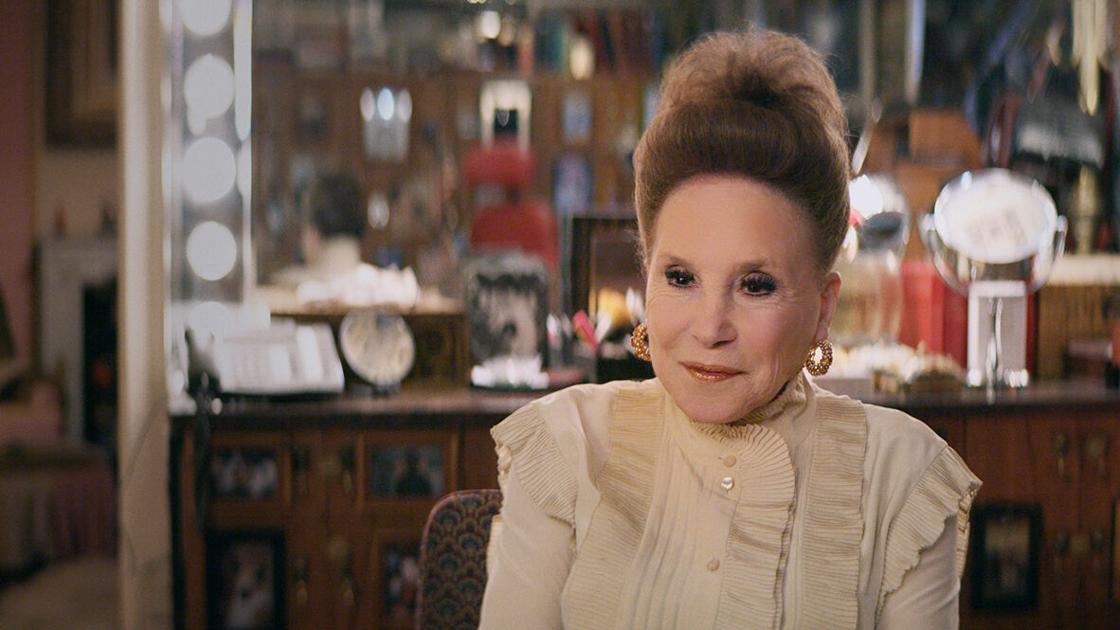
“In the early ’90s, gossip became very hot.” These are the first words you hear in the new docuseries “Gossip,” coming to Showtime this weekend.
That raised an eyebrow for me. Gossip columns didn’t suddenly spring to life 30 years ago. So what’s the aim here? To some extent, the series is a four-part look at the power of the New York tabloid press from the 1970s onward, and how these columnists paved the way for the eventual presidency of Donald Trump.
But Hollywood gossip, as a business, has existed as long as Hollywood itself. It’s a specific form of mutual manipulation, between the gossip writer and whoever is passing along the illicit information, be it a press agent, rival or crank.
STAKE IN SHAPING STORY
The ways in which Harvey Weinstein used favor-trading to his advantage are laid out in clear terms; he gave book deals to gossip columnists Paula Froelich (“which some people made a big do about,” she says) and A.J. Benza, who is open if unreflective about his conflicts of interest: “He gave me a hundred grand for a book. Then he optioned the book for a movie. Then he sat down with Johnny Depp to play me. Very heady stuff went on. So Harvey to me was a wonderful guy.”
Nearly everyone interviewed is either a current or former gossip writer, all of whom have an obvious stake in shaping how this story is told — 91-year-old Cindy Adams, a fixture at the New York Post, gets the most time here — but there’s a notable absence of anyone who was on the receiving end of their work. This undercuts director Jenny Carchman’s series, as does the fact that one of the few non-gossip columnists she does include is Roger Stone, as if he’s a reliable narrator of anything. The one-time Trump campaign aide was convicted in 2019 of lying to Congress among other crimes; his sentence was subsequently commuted.
There’s one brief moment when you think Carchman might be inching in the right direction. Ben Widdicombe, a former gossip columnist for the New York Daily News and now editor-in-chief of Avenue magazine, tells her: “Gossip is frequently disparaged. And I understand the reasons why. But the trashy stuff connects to the bigger picture, and we ignore it at our peril.” That’s the kind of incisive statement that opens the door, but the series as a whole declines to walk through it.
LACKS OUTSIDE INSIGHTS
The series is ultimately too diffuse, too admiring, to offer up anything that feels particularly trenchant. And it lacks insights from people outside the industry who have studied how gossip functions, both good and bad.
Here’s what is always going through my mind as I watch anything: Presentation does not equal analysis. Depiction does not equal inquiry. This sleight of hand is increasingly common in documentary filmmaking. Exhaustive research is a good thing and “Gossip” has certainly done the work, but without context or scrutiny, it’s just data. As viewers, we should expect more than an approach that amounts to “Lookit this thing!”
There’s a shrugging “whaddaya gonna do?” vibe to most of the interviews in “Gossip.” Certainly the people featured here are hardly the first (or even the worst) practitioners of the form to have used it to exploit their power. Walter Winchell, Hedda Hopper and Louella Parsons dominated the field for the first half of the 20th century and they took no prisoners.
The biggest bylines were reserved for white writers. That’s true in “Gossip” as well, and it’s true of journalism as an industry. I wish the series had questioned how this has affected coverage. Just two Black people are interviewed here and only briefly — Page Six alum Flo Anthony and Media Take Out founder Fred Mwangaguhunga. I don’t know how you credibly explore anything relating to journalism and gloss over this aspect of it.
For what it’s worth, Hopper was known within the motion picture industry as “deeply bigoted,” according to scholar Jennifer Frost, whose research paper “Hedda Hopper, Hollywood Gossip and the Politics of Racial Representation in Film,” was later expanded into the book, “Hedda Hopper’s Hollywood: Celebrity Gossip and American Conservatism.”
The connection between gossip and conservatism is made in the Showtime docuseries as well, linking Rupert Murdoch’s purchase of the New York Post in the mid-’70s (and the subsequent creation of Page Six and hiring of Adams) to the paper’s decidedly more conservative coverage. Frost is the type of expert who probably could have provided some fascinating context to the story “Gossip” aims to tell.
Especially because Frost has the kind of insights that go deeper in important ways.
She writes that Hopper’s interactions with Black actors she did approve of “were characterized by paternalism and condescension. In these racial beliefs, Hopper was no different from most of Hollywood.”
"gossip" - Google News
August 18, 2021 at 11:15AM
https://ift.tt/3CXrAFN
New, flawed docuseries 'Gossip' explores power of the tabloid press - yoursun.com
"gossip" - Google News
https://ift.tt/2QfcAx1
Shoes Man Tutorial
Pos News Update
Meme Update
Korean Entertainment News
Japan News Update

No comments:
Post a Comment